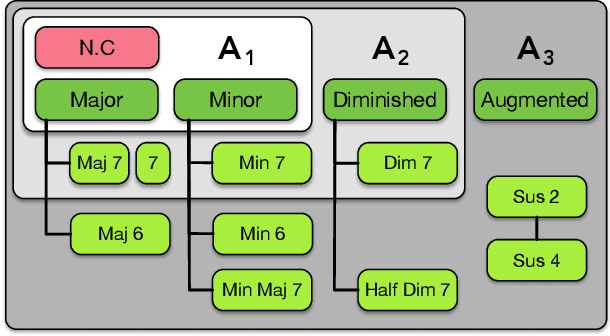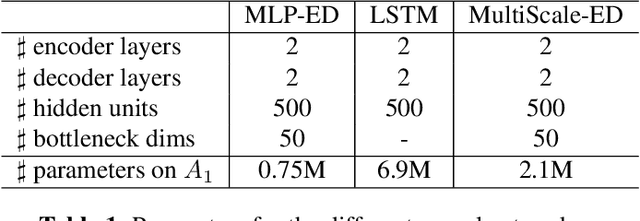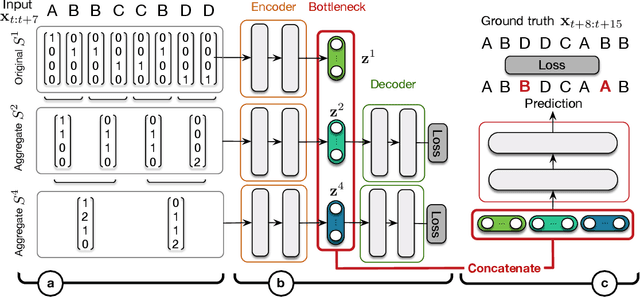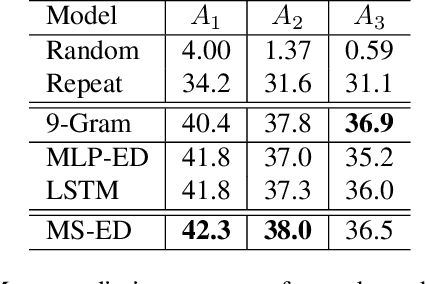Multi-Step Chord Sequence Prediction Based on Aggregated Multi-Scale Encoder-Decoder Network
Paper and Code
Nov 12, 2019



This paper studies the prediction of chord progressions for jazz music by relying on machine learning models. The motivation of our study comes from the recent success of neural networks for performing automatic music composition. Although high accuracies are obtained in single-step prediction scenarios, most models fail to generate accurate multi-step chord predictions. In this paper, we postulate that this comes from the multi-scale structure of musical information and propose new architectures based on an iterative temporal aggregation of input labels. Specifically, the input and ground truth labels are merged into increasingly large temporal bags, on which we train a family of encoder-decoder networks for each temporal scale. In a second step, we use these pre-trained encoder bottleneck features at each scale in order to train a final encoder-decoder network. Furthermore, we rely on different reductions of the initial chord alphabet into three adapted chord alphabets. We perform evaluations against several state-of-the-art models and show that our multi-scale architecture outperforms existing methods in terms of accuracy and perplexity, while requiring relatively few parameters. We analyze musical properties of the results, showing the influence of downbeat position within the analysis window on accuracy, and evaluate errors using a musically-informed distance metric.
 Add to Chrome
Add to Chrome Add to Firefox
Add to Firefox Add to Edge
Add to Edge